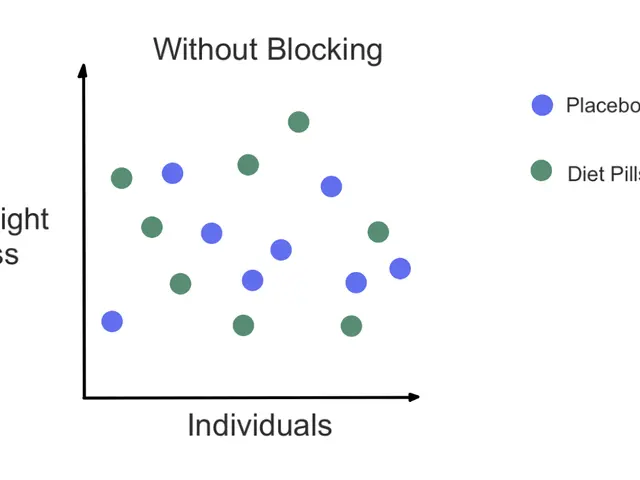Vegan Nutrition: Advantages, Food Options, and Guidelines
A well-planned vegan diet can offer numerous health benefits, but it's essential to be aware of potential nutrient deficiencies. Key areas of concern include vitamin B12, iron, omega-3 fatty acids, zinc, iodine, and calcium.
Vitamin B12, crucial for nerve function and red blood cell formation, is primarily found in animal products. Vegans can rely on supplements or fortified foods to meet their needs. Iron, while abundant in plant-based sources, has lower bioavailability compared to animal-derived iron. Pairing iron-rich foods with vitamin C can enhance absorption.
Omega-3 fatty acids, vital for brain and heart health, are less bioavailable in plant sources. Algae-based supplements provide a practical alternative. Zinc from plant sources is also less bioavailable, but foods like pumpkin seeds, legumes, and nutritional yeast can help meet zinc needs.
Iodine, important for thyroid function, can be increased through seaweed and iodized salt. Calcium, while available in plant-based sources like fortified plant milks and kale, is less efficiently absorbed than dairy-derived calcium.
To mitigate these deficiencies, consider using supplements and fortified foods, eating a balanced diet, enhancing bioavailability through pairing iron with vitamin C, planning meals, and consulting nutrition professionals for personalised advice.
Vitamin D can be obtained from vitamin D-fortified foods and spending time in the sun. It's important to note that eliminating red and processed meats from the diet reduces the risk of certain cancers, particularly colorectal cancer.
A moderate calorie intake from a vegan diet can lead to a lower body mass index (BMI) and a reduced risk of obesity. However, a junk food vegan diet, high in processed or high-fat plant-based foods, can lead to unhealthy weight gain.
In conclusion, a well-planned vegan diet can be nutritious and beneficial, but it requires careful consideration of nutrient intake and potentially the use of supplements to ensure adequate nutrition.
- Aq: For vegans, supplements can be a reliable source of vitamin B12, crucial for nerve function and red blood cell formation.
- Othernutrition: Pairing iron-rich foods with vitamin C can enhance absorption of iron, which while abundant in plant-based sources, has lower bioavailability compared to animal-derived iron.
- Diettypes: Algae-based supplements provide a practical alternative for obtaining omega-3 fatty acids, vital for brain and heart health, which are less bioavailable in plant sources.
- Antiaging: Consulting nutrition professionals for personalized advice can help in mitigating potential nutrient deficiencies and maintaining a health-and-wellness lifestyle, especially in the context of antiaging.
- Science: Calcium, although available in plant-based sources like fortified plant milks and kale, is less efficiently absorbed than dairy-derived calcium, a fact rooted in nutritional science.
- Health-and-wellness: A moderate calorie intake from a vegan diet can lead to a lower body mass index (BMI) and a reduced risk of obesity, contributing to overall health-and-wellness.
- Fitness-and-exercise: It's important to note that a junk food vegan diet, high in processed or high-fat plant-based foods, can lead to unhealthy weight gain, making fitness-and-exercise all the more vital.
- Predictive: Eliminating red and processed meats from the diet reduces the risk of certain cancers, particularly colorectal cancer, as predicted by studies in the field of health science.





